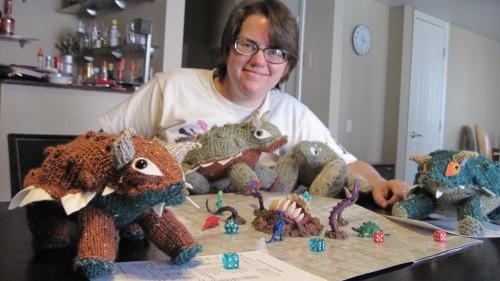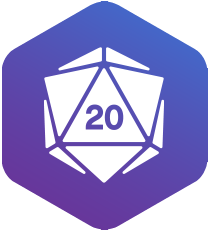
The Roll20 Team
Want to pit characters against each other in a social struggle to get what they want without giving up what they hold dear? DramaSystem by Pelgrane Press may be just the roleplaying system you’re looking for - and the core rules are available for free on the Roll20 Compendium! We sat down to talk with our Scrum Master, Stephanie, who first began assembling this Compendium back in October for Hacktoberfest. We’re also releasing the Hillfolk Card Deck on Roll20, an add-on which can be used to bring new twists to your narrative with the simple flip of a card.
Get the Hillfolk Card Deck before March 12 at a special launch price of only $7.99 USD!
Roll20: What drew you to the idea of bringing DramaSystem onto Roll20?
Stephanie: Over the summer, Steve (Roll20’s Lead Developer) mentioned that he wanted to play a game with DramaSystem. I’d played it before and liked it, so I offered to GM the game. It was intense. We played a scenario from The Hillfolk called “The White Dog Runs at Night” about a 1920s bootlegging criminal family. The characters were at each other’s throats the whole time.
Roll20: That seems fitting for a game called DramaSystem.
Stephanie: Yeah, the framework puts everyone in contention. The game is geared toward interpersonal relationships, and there’s always a reason characters don’t want to give in to each other. Very seldom do you have truly heroic characters in DramaSystem because everyone is caught in a dichotomy of who they should be. It’s called their dramatic poles. If you want to be heroic, your opposite pole is “self-serving." But players gain Drama tokens by doing a thing their character doesn’t want, such as making an emotional concession, so there’s a constant push and pull.
Roll20: So you were playing for a couple of months and then decided to bring the system to Roll20? What inspired that?
Stephanie: Within Roll20 there was a desire to bring more systems onto the platform. Any system that has an SRD _(Editor’s note: SRD means "System Reference Document,” an open source set of rules for tabletop game systems) _is a system that we could conceivably put up, and our goal was to eventually open up Compendium editing directly to publishers. But we didn’t want to make it so complicated that only a programmer could do it. I felt I was a good person to do this because I came at it with newbie eyes. When I came across something that made me say, “I don’t understand why it’s like this” or “how do I do this,” I could go to the development team and ask “okay, why don’t we fix that?” And as I learned this process, I also updated the Building Compendium Wiki page to make it easier to follow.
Roll20: You basically did your own test-run of Compendium creation so the process could be opened up for game publishers. What are the benefits of that?
Stephanie: There are plenty of publishers who just want their ruleset out there. They want people playing their game, and they can put out an SRD to let people experience the system. Being able to have that system available online with Roll20 so players can easily drag and drop or look up rules... that’s huge. They can also sell add-ons and modules through the Marketplace. Quite frankly, indie game designers - we NEED a broader revenue base. Lots of us were using Google+ to talk to each other and now that’s closing down. We’re keenly aware that having all your eggs in one basket is a scary thing.
Roll20: You’re a developer yourself?
Stephanie: I’ve worked on several games and published several games. Threadbare RPG is the one that I published on my own.
_There’s nothing threadbare about these adorable dinosaurs Stephanie knitted for her gaming group! _
Roll20: So from your perspective, opening up the Roll20 Compendium for publishers is both a security thing and a growth thing?
Stephanie: It’s absolutely a growth thing. If you’re an indie game designer and you are just doing it as a hobby, that’s awesome, but if you really didn’t want to grow, you wouldn’t make the next thing. Even if you’re perfectly happy with your success so far, some part of you wants to do something new and different and change or you wouldn’t make another game. The whole point is you’re constantly expanding what you want your imprint to be. Roll20 is yet another vector you can use for expanding where you are, where people can find you and buy your stuff. And honestly, the revenue stream is nice.
Roll20: Do you think this opens up new space in the indie TTRPG scene?
Stephanie: Yes. The answer is yes. There are so many cool ideas we could play with. I don’t think I’m the right person to design this, but I’d like to see a game about social media and the way it connects! You could use a Compendium to represent the rules in that non-linear way. And for games with a lot of rules and number-crunching, Roll20 does the math. People like me who aren’t math-heads are just gonna be able to jump in and play.
Roll20: Anything that you would like to see happen for Compendiums now that you’ve finished the DramaSystem?
Stephanie: I’m a Pelgrane fan girl so I’m going to talk up more of their games for a minute. I would love to see Gumshoe and would like to have a TimeWatch character sheet. That’s something that interests me personally. 13th Age would also benefit from all the drag and drop stuff. Lots of people in the 13th Age community already play online. When you have a system like that which doesn’t have a lot of centralized local places to play, you have to run your games online. That’s where your community is. Then there’s the Hillfolk Card Deck coming out.
Roll20: Right, Pelgrane is releasing the Hillfolk Card Deck on Roll20. It’s a good supplement for DramaSystem games like your bootlegging crime family.
Stephanie: Yeah, the Hillfolk deck uses standard playing cards and Pelgrane is making a specialized version available on Roll20;. The specialized deck still has regular card stuff, like aces and queens, but the top and bottom have different emotional stakes or scene elements written on them and you can rotate the card depending on what you need. If you wanted to add an element to a scene or create an emotional conflict, you deal out the card and flip it one way or the other. It’s good inspiration; it keeps things lively. And you can bring it into lots of different games.
-png.jpeg)
The Hillfolk Card Deck in action! One side offers emotional goals for your scene (“Seek attention”), while the other provides practical complications to spice up a scene (“A stranger appears”). On Roll20, you can easily add them to any game and draw new cards with the click of a button!

